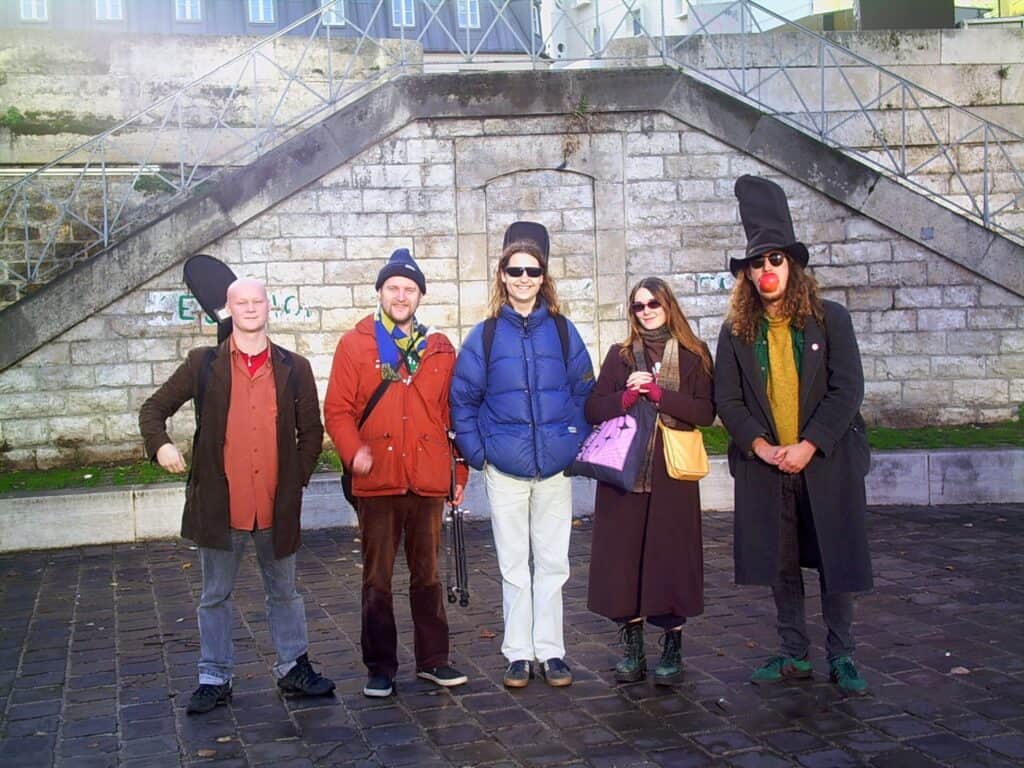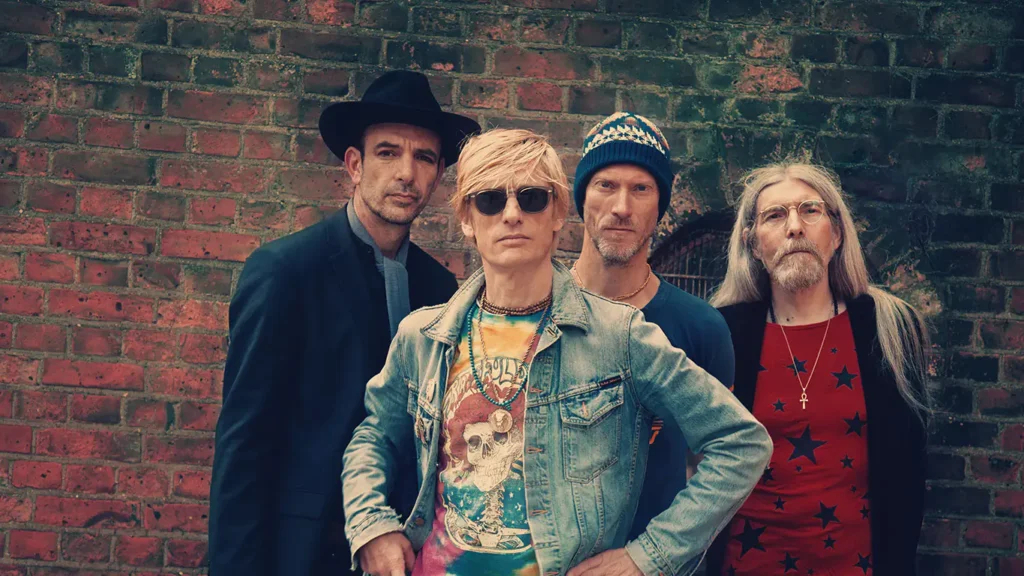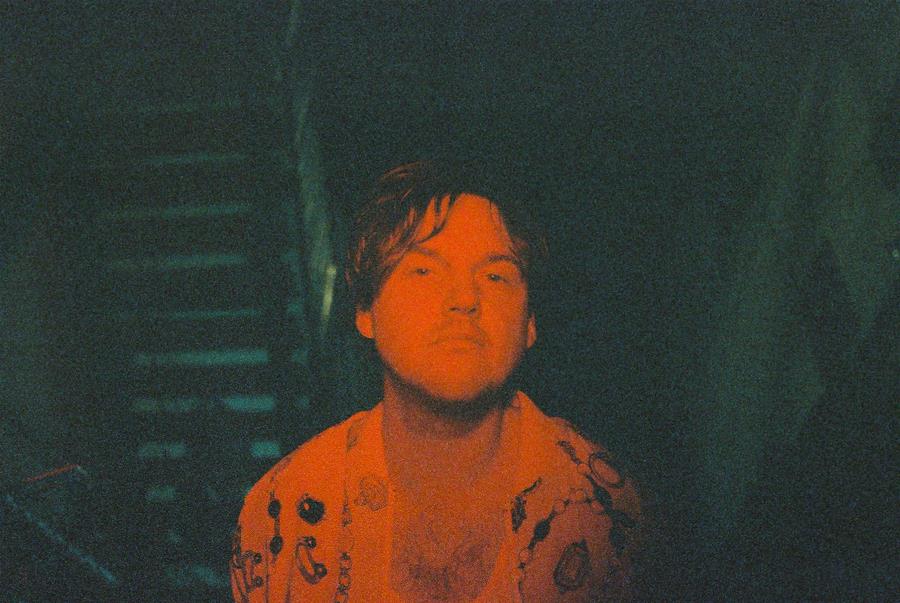What does it mean to you guys now that Gentrification is done?
Leo Ashline – I feel grateful that we were finally able to finish what we started eight years ago. Gentrification I was the first thing we ever released. We initially planned on completing the series before moving on to other releases, but things didn’t work out that way. Still, I’m glad it wasn’t left incomplete.
Shaun Ringsmuth — It means no more revisions, no more what-ifs, in terms of the music composition. Eight years is a long time to have a backburner project floating around. It’s hard to be present with any current work if there is an old idea that requires even older associations calling out to be finished. I’m happy to see it done and that the Flenser agreed to release it. I’m so stoked that all of the artwork by A.J. Garces is out there now.
How do you define success as people, and as artists now?
LA – The older I get the less meaning that word seems to hold for me, at least in a general sense. As a person I’m always a work in progress. Victories and failures occur on a daily basis. As an artist, I think a measure of success is not giving up, and to never stop learning. And perhaps more importantly, to never stop enjoying it. It doesn’t have to be fun and exciting all of the time, but it should at least give you some sense of enjoyment and fulfillment most of the time. If you choose to dedicate your life to art, chances are it’s going to be a very difficult and potentially lonely road. Finding a way to not allow the obstacles in life, the negative aspects of the business to rob you of the feelings that drove you to create in the first place, I think that’s a certain kind of success.
SR — I don’t have an all-encompassing definition of success, as I’m still learning what that is in real time. One part of success is constructing meaning and purpose out of one’s life, so that no matter what path is chosen, a person can look inside and find motivation to push forward rather than looking to external factors. I think success is maintaining oneself in a way where there is energy to go to the things that really matter. I’ve wasted a good deal of time with various addictions, and they are exhausting, even though they give temporary relief for just that day or moment. Success is being able to think clearly.
How do you look back at ‘End Position’ now?
LA – I’m proud of it. Emotionally, it’s an ugly and unpleasant record, but it’s an honest one. We had a fully realized artistic vision for it, and even though our toolbox was severely lacking from a production standpoint, I think that vision comes across in the final product.
SR — I check in on it every once in a while to see where I’m at in my production skills. What stays with me about that album is the response from people. It seems to have connected with those who struggle with anxiety, addiction, depression, and many reached out to us over the years to express how it helped them process difficult times in their life. For me, I don’t actually have a lot of good memories associated with making it. The band lived in a filthy house. There was a lot of tension. It wouldn’t be until after that record was made that I got sober, so I was constantly in a mental punishment cycle of feeling bad to feeling hopeful.
How would you say your mission statement, and what you wanted to achieve as a band has changed, if at all since the band started out?
LA –For me personally, the main thing that’s changed is I no longer want to look at the band as my reason for being. Since the beginning I depended on Street Sects to keep me going, to give me a reason to get out of bed everyday, and to keep me from destroying myself. Then the pandemic happened, and I found out the hard way how utterly wrong it is to choose to live that way. So my goal now is to have the band be sustainable, in a healthy and realistic way. I want to be around long enough to hear what we sound like five records from now.
SR — If some part of the statement scroll said, “Create something wild. Don’t be boring. Learn. Work long enough to get into a mental flow state and really channel something,” then the mission statement hasn’t changed much for me. There are so many things to learn and try, from production as a whole, to individual elements of music, to concepts, to live representation. In the end, I want to come away with at least a few core records or even tracks that I’m proud of above others, because I was able to apply focus and really be there in the moment. Legacy is an interesting thought experiment, but we can’t take our work to the grave, so we have to live it.
How are you looking forward to getting back out on tour in the US?
LA – To be honest I didn’t really miss touring all that much. That said, I’m a big fan of the bands we’ll be supporting, so I’m pretty excited for this tour. I think it’s going to be a lot of fun.
SR — Touring is a job. It does have moments of levity in unexpected jokes, interactions with strangers and road-related friends, and serene moments driving through different terrains. Exiting San Diego heading east toward the desert always stays with me, because the light pollution fades and the stars and greater silence take over. However, it also has an element of “hurry up and wait,” where one struggles on the road to get to the show, load-in and soundcheck, and then just tons of in-between time, where sleep isn’t ideal but neither is bottomless caffeine. What I am looking forward to is seeing HEALTH and Perturbator crush it every night.
What is your message to fans in the UK, who may be just discovering you?
LA – “Keep a good head and always carry a light bulb.”
And to those that have supported you for ages?
LA – Thank you!!!! It means the world to us. Hopefully we can come back to the UK In the not-too-distant future.
Thanks for your time!!






